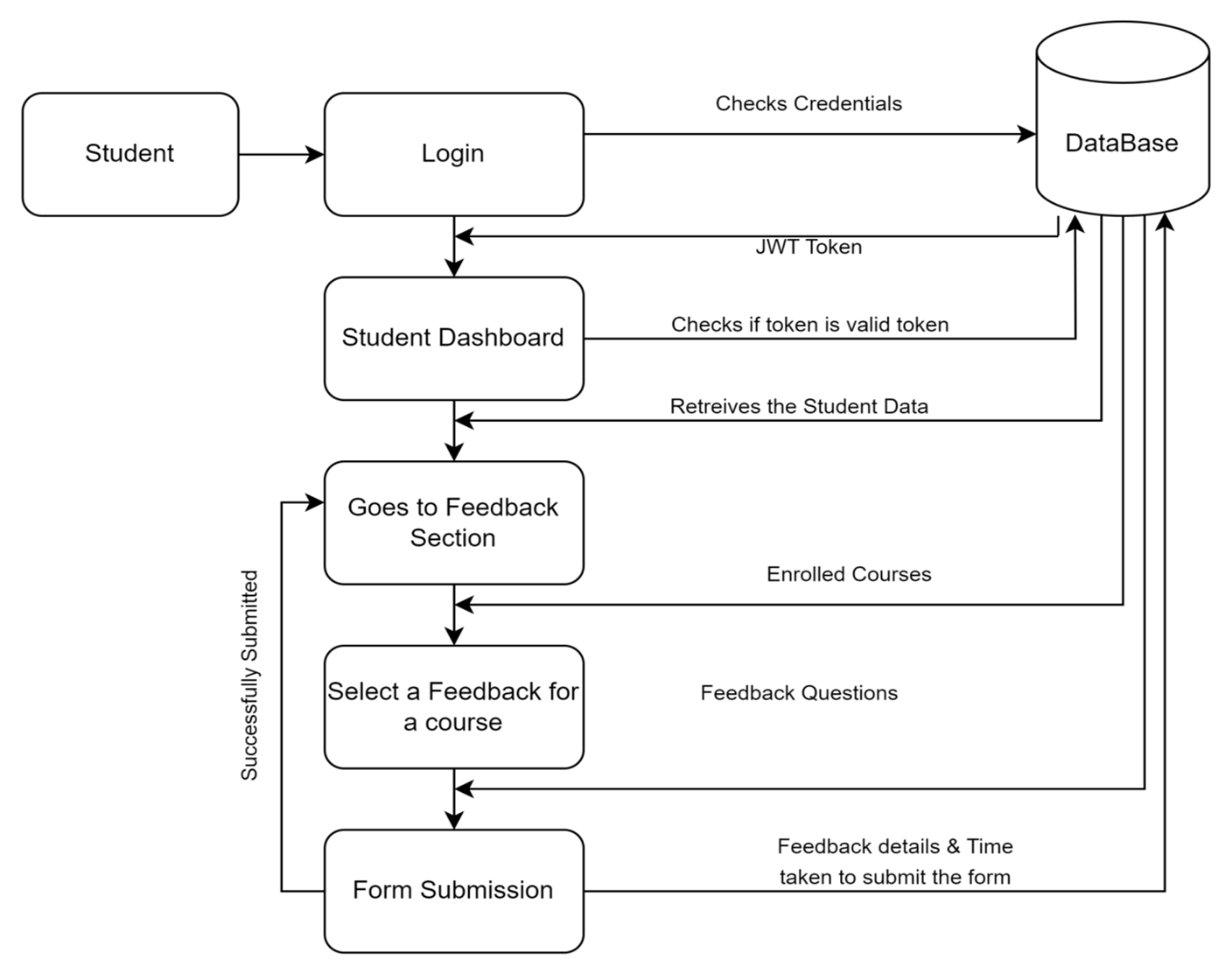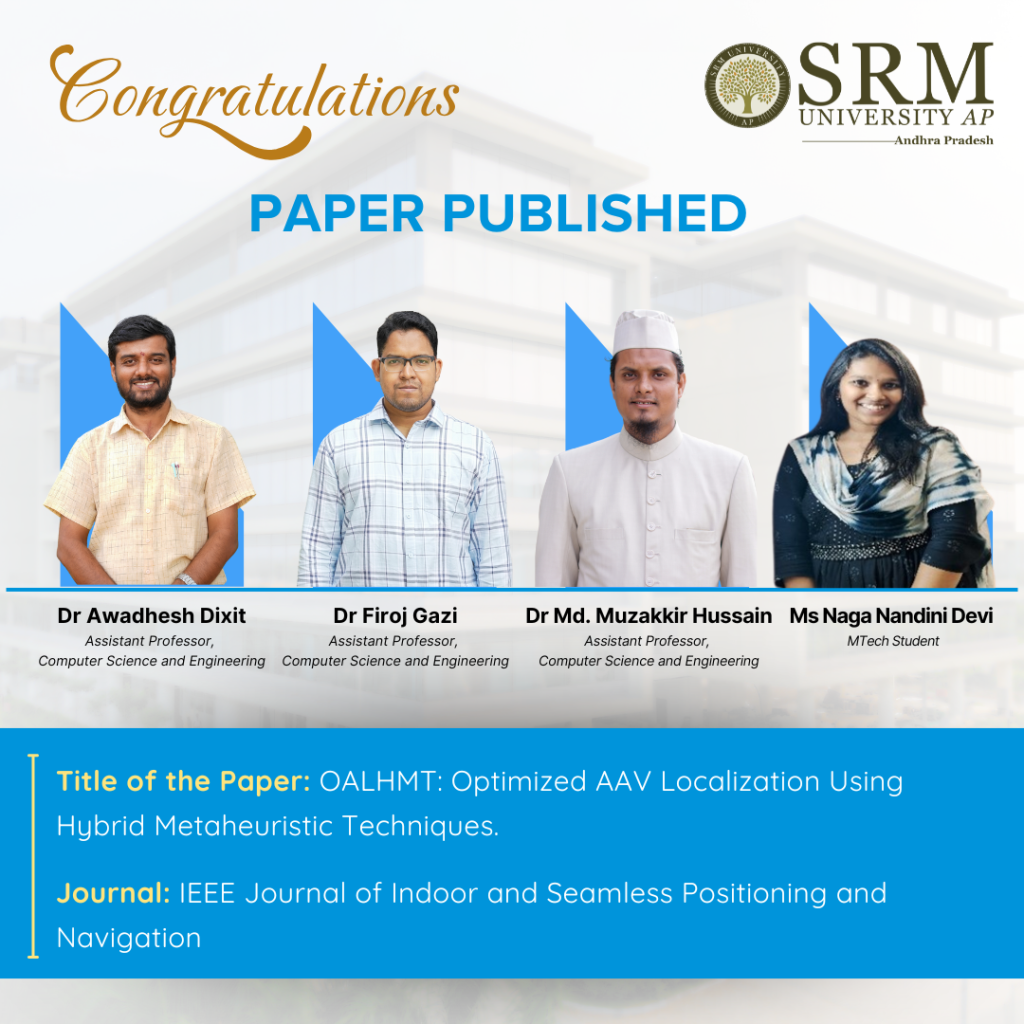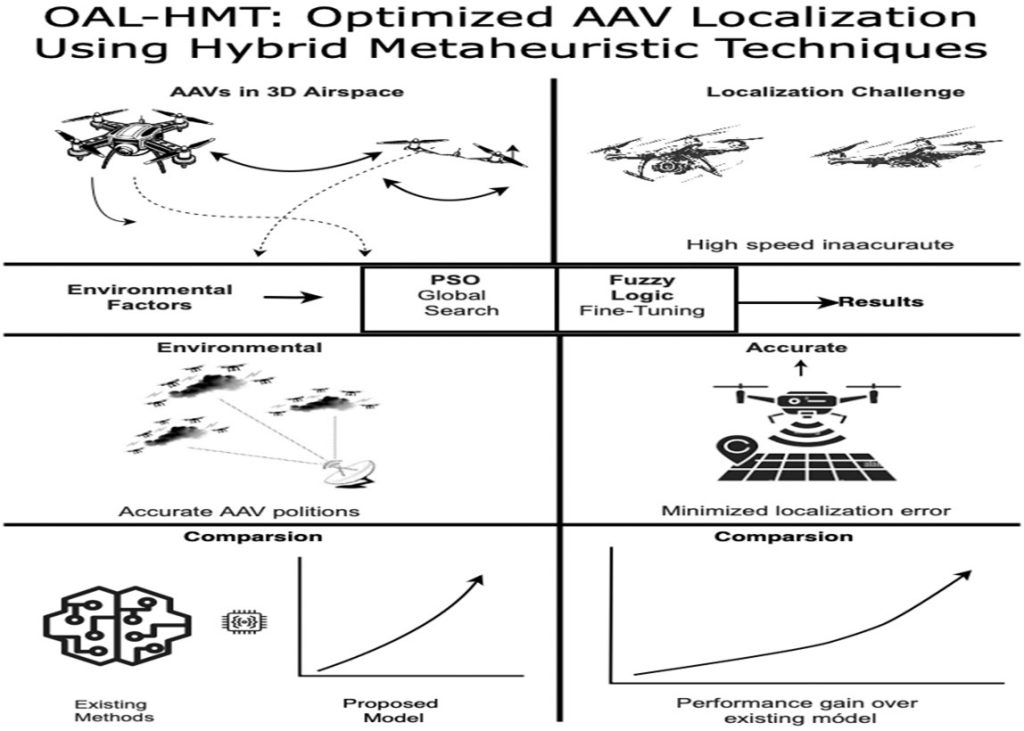Recent News
- Patent on Feedback System for Faculty Insights August 29, 2025
The faculties from the Department of Computer Scinece and Engineering, Dr Sasmita Rout, Dr Hema Kumar Yarnagula, and Dr Debabrata Senapati, along with their students and scholars, Mr Muthyala Sai Venkat, Mr Mukku Suhas, Mr Seelam Avinash Reddy, and Mr PV Manikanteswara Rao Baddi, introduce an innovative system that gathers student feedback on their learning experiences through questionnaires. By refining this feedback using specific metrics, the system delivers a more accurate assessment of faculty performance, ultimately enhancing teaching methods and creating a more engaging educational environment for students.
Brief Abstract of the Research
In the realm of higher education, student feedback is crucial and offers invaluable insights into the effectiveness of teaching methods. In addition, it helps faculty members by illuminating how their instructional practices affect student learning outcomes. The student feedback in academic settings empowers educators to adapt and refine their teaching strategies by identifying strengths and areas for improvement. Thus, ultimately creates a more engaging and impactful learning experience for the students. This article introduces a next-generation weighted student feedback system that collects responses using a set of questionnaires, referred to as the Conventional Feedback Score (CFS), from students about their learning experience and course effectiveness. The proposed system then refines the students’ responses based on three key metrics to provide a more accurate, balanced, and reliable assessment of the faculty performance. Our experimental results show that the proposed weighted feedback system provides a more accurate, reliable, and robust feedback score compared to CFS.
Explanation in Layperson’s Terms
The proposed feedback system is designed for use in academic settings such as colleges, universities, and online learning platforms seeking honest student evaluations. Any higher educational institution that prioritises quality teaching and fair assessments can benefit from the proposed system. Its key advantage lies in enhancing feedback reliability by minimising incorrect or irrelevant responses.
Practical Implementation and Social Implications associated with the Research
Any higher educational institution with an intent to prioritise quality teaching and fair assessments can benefit from the proposed system. Its key advantage lies in enhancing feedback reliability by minimising incorrect or irrelevant responses. This allows the institute administrators to make more informed decisions regarding faculty performance and instructional improvements. The system integrates easily with existing feedback mechanisms, enabling quick and efficient adoption. Primarily, this invention serves academic institutions aiming to collect accurate and fair student feedback for faculty evaluation.Collaborations
In-house work with collaborations from IIT Guwahati and IIT Kharagpur
Future Research Plans
Plan to expanding the research and tackle challenges in areas such as real-time scheduling, embedded systems, and cyber-physical systems, with the aim of developing innovative solutions that address critical issues in these domains.
Continue reading →
- A Smart System for Optimised AAV Localization July 30, 2025

By combining Particle Swarm Optimisation (PSO) and Fuzzy Logic, the team at SRM AP has discovered a hybrid smart system for accurate localization of autonomous aerial vehicles (AAVs). Dr Awadesh Dixit, Dr Firoj Gazi, Dr Muzakkir Hussain Md, Assistant Professors and MTech student Ms Naga Nandini Devi from the Department of Computer Science and Engineering, have published their research article “OALHMT: Optimised AAV Localization Using Hybrid Metaheuristic Techniques” in the IEEE Journal of Indoor and Seamless Positioning and Navigation, that discloses the making and implementation of this smart system that is precise and works better than current methods for positioning and navigation.
Abstract
Accurate localization remains a critical challenge for autonomous aerial vehicles (AAVs) due to their high-speed, multidirectional movement. Precise positioning is essential for efficient resource management and task reallocation during flight. This research proposes a bioinspired hybrid model combining Particle Swarm Optimization (PSO) with fuzzy logic to enhance AAV localization accuracy. PSO effectively explores the search space to identify optimal positions, while fuzzy logic fine-tunes the solution using real-time environmental inputs such as signal strength, sensor noise, and GPS inaccuracies. This synergistic approach leverages PSO’s global optimization with the contextual adaptability of fuzzy systems, delivering robust and precise localization under dynamic and noisy flight conditions. Comparative evaluations with existing methods demonstrate the model’s superior accuracy and responsiveness in real-time AAV operations.
Practical Implementation/Social Implication of the Research
Proposed hybrid optimization for Indoor localization through swarm UAVs, localization methods for autonomous aerial vehicles (AAVs) typically rely on the global positioning system (GPS), which is effective in open environments. GPS provides accurate real-time positional data, making it widely used for outdoor AAV localization.
The team will continue to focus on developing swarm-based V2X communication and coordination, and reduced interference, secure communication for enhance UAV networks performance, advance AI-related applications.
Link to the article
Continue reading →
Overall abstract diagram of the paper

